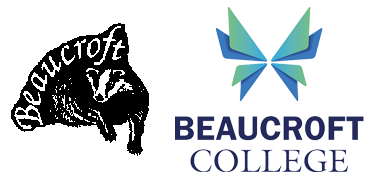At Beaucroft School we have a range of provision to meet the needs of young people with autism.
We are proud to call all the classes at Beaucroft ‘ASD friendly.’ By this, we mean, they are visual, clearly structured and staff demonstrate a sound understanding of the particular educational, social and communication needs of pupils with ASD. The school has a ‘total communication’ environment and staff follow a rolling programme of training that includes signing, ASD awareness, the use of visual cues and understanding behaviour.
As part of our provision we have specialist classes where the pupils will have autism as their major barrier to learning. The three recognised areas of impairment are:
- CommunicationThis includes difficulties with both receptive communication (what the child understands) and expressive communication (how they communicate with others)
These impairments in communication mean that pupils will have difficulties in using and understanding verbal information as well as non verbal communication such as gesture, body language, eye contact and facial expression.
- Social InteractionThe social interaction impairment can mean that the young people appear withdrawn and may have difficulty interacting with others.
Children may have a desire to interact with others but have problems understanding the underlying rules of social interaction.
- Flexibility of ThoughtImpaired flexibility of thought will affect a child’s ability to predict, understand and accept change as well as understanding the thoughts, feelings and motivations of others, playing and thinking creatively and flexibly.
Many young people with autism also have sensory problems.
Our Approach
In the autism provision we aim to meet the needs of our students by addressing the autism issues as a priority. The National Curriculum is planned in a way that ensures the students can generalise their learning as much as possible. For our students with autism understanding how things fit together and make sense can be a real challenge.
We aim to have regular community visits so that skills learned in school are generalised in to the wider community, for example, reading a menu or shopping list, asking for help, understanding money, using PECS (Picture Exchange Communication System) and other communication skills in the community and learning about self advocacy and safety.
Everything we teach is designed to enable our young people to be as independent as possible both now and in the future.
The environment in the classes is structured and there is an emphasis on providing visual systems and routines to ensure that students understand what is happening throughout the day. These visual systems include visual time tables, visual reward systems and PECS. We also aim to teach flexibility and how to cope with change and the anxiety this may bring.
We work closely with parents and carers and provide daily information in the home/school diary.
